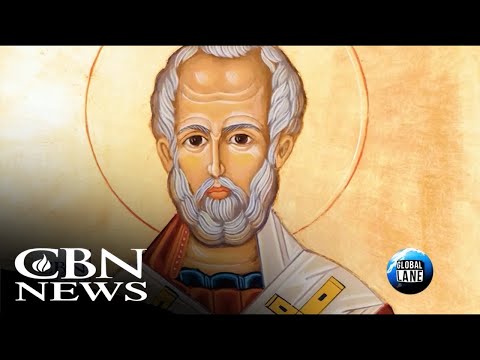The Christmas season is a cherished time for the evangelical community, filled with joy, love, and reflections that root back to Christian traditions. It is important to understand how Christmas evolved from a profound religious celebration to the more secular holiday it appears to be today. St. Nicholas, a prominent figure in this transformation, serves as a reminder of the values inherent in gift-giving and charity, which echo the teachings of Jesus Christ.
St. Nicholas was a real historical figure, a Greek Orthodox bishop born around 280 A.D. in Asia Minor. His life was characterized by acts of generosity and compassion, particularly for the less fortunate. He became known for secretly giving gifts to those in need, often throwing money through windows to avoid drawing attention to himself. This selfless behavior aligns closely with Jesus’ teachings about caring for the poor, and it is the foundation upon which many Christmas traditions will later build. As believers reflect on the life of St. Nicholas, they can see a clear embodiment of the Christian ideal of loving one’s neighbor.
As centuries passed, the legacy of St. Nicholas spread throughout Christendom, with remarkable events like the conversion of Emperor Vladimir the Great of Russia. He adopted Nicholas as the patron saint of Russia. This recognition of Nicholas established him as a figure of Christian virtue across nations. However, it was also during this time that secular influences began to infiltrate Christmas celebrations, notably with the transformation of gift giving from St. Nicholas Day on December 6 to Christmas Day itself. This shift helped intertwine the spirit of St. Nicholas with the birth of Christ, allowing families to celebrate both traditions in unity.
In the midst of the Reformation, a movement led by figures like Martin Luther, Christmas customs faced scrutiny. Luther downplayed the veneration of saints, including Nicholas, to refocus attention on Christ. Nevertheless, this period also saw the rebranding of Nicholas, shifting his portrayal into the folklore of Santa Claus. The influence of Dutch settlers and the writings of poets led to the fashionable celebration of Santa, which in many ways represented love and care, albeit in a form that sometimes overshadowed the spiritual significance of the holiday.
Despite these changes, the fundamental values of Christmas remain strong in the hearts of many believers. The traditions associated with St. Nicholas serve as a reminder of the importance of giving and compassion during the holiday season. Families are encouraged to reflect on the life of St. Nicholas and recognize the significance of acts of kindness and charity. With every gift exchanged, there is an opportunity to embrace the spirit of selflessness that Nicholas exemplified and to speak to the heart of the Christmas message.
As Christmas approaches, evangelical families can find joy in reclaiming the true essence of the holiday. They can participate in acts of generosity, share stories of St. Nicholas with their children, and create traditions that focus on honoring God through service to others. By emphasizing the Christian values that are woven into the fabric of Christmas, believers can deepen their appreciation for the season and ensure that the message of Christ shines brightly through their celebrations.



